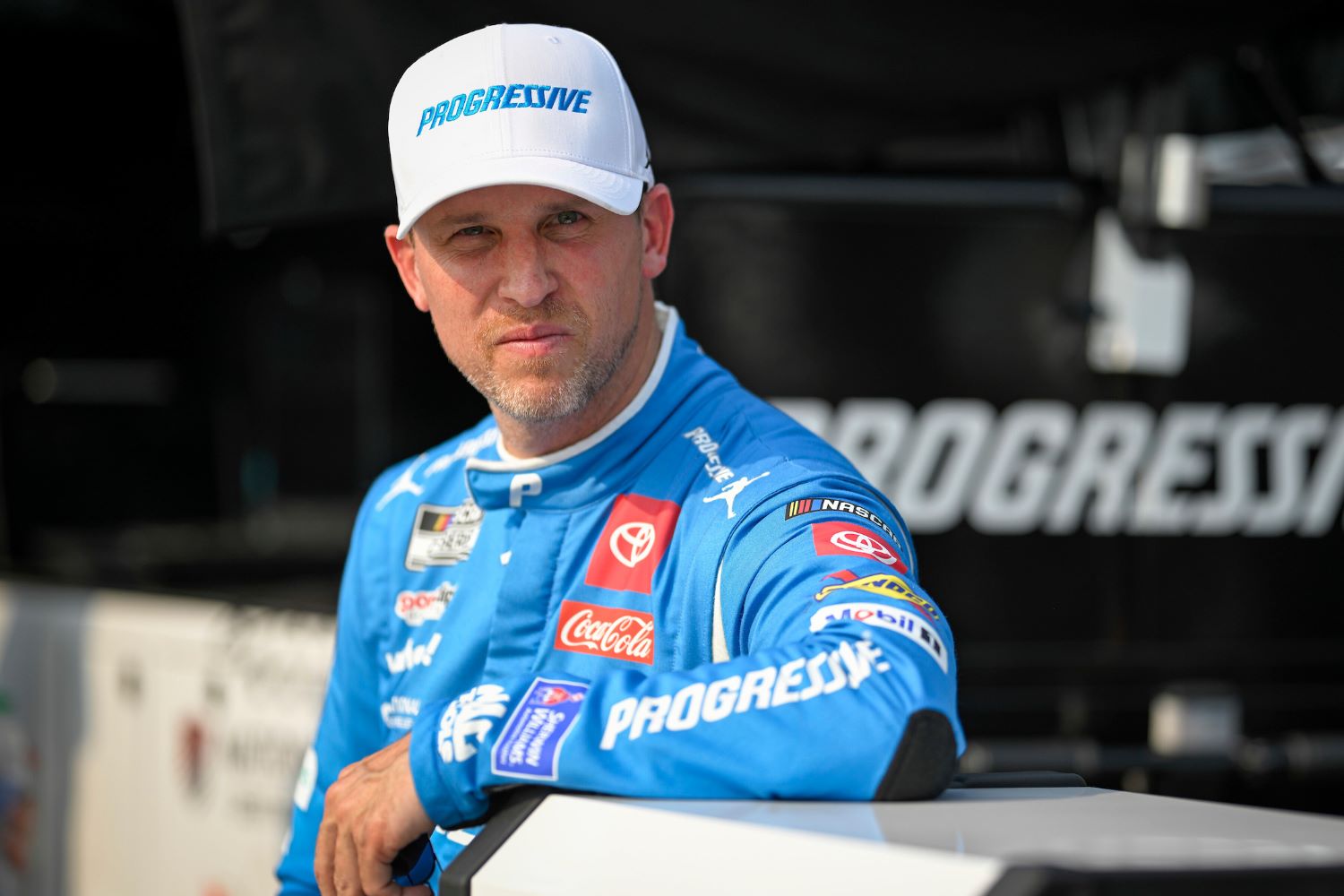NASCAR News: Denny Hamlin Sounds Off on NASCAR’s TV Viewership Crisis
Denny Hamlin isn’t mincing words about NASCAR’s struggles to keep viewers tuned in. On his *Actions Detrimental* podcast, the veteran driver laid bare the sport’s battle against declining ratings, a grueling schedule, and the NFL’s Sunday dominance. With the 2025 NASCAR Cup Series averaging just 2.52 million viewers—a 13% drop from 2024—Hamlin’s frustration reflects a sport at a crossroads.
–by Mark Cipolloni–
“It all comes down to shares,” Hamlin said. “If football’s on, I’m watching it. I might flip to NASCAR during commercials, but football’s my priority. It’s tough for any sport to grow when it’s up against that juggernaut.”
Related Article: TV News: NASCAR’s TV Ratings Plummet: Insider Exposes Deep-Rooted Issues
The numbers tell the story: NFL games average 17.5 million viewers, while NASCAR races like New Hampshire’s drew a mere 1.29 million, down 28% from last year. Meanwhile, Formula 1 is closing the gap, with races like the Azerbaijan Grand Prix pulling 1.1 million viewers, and 16 of 17 races in 2025 outpacing 2024.
Hamlin’s solution? Rethink NASCAR’s schedule and accessibility. “Why not own Friday night instead of Sunday?” he asked. “Fans could travel home without worrying about school nights. Sunday afternoons are traditional, but if you were building a series from scratch, you’d pick days that avoid football.”
Friday or Saturday night races, like Bristol’s electrifying evening events, could sidestep the NFL and make it easier for fans to tune in or attend without choosing between sports.
He also took aim at NASCAR’s marathon 38-race season, which includes the playoffs and stretches fan enthusiasm thin. “You wouldn’t race 38 weeks if you started from scratch,” Hamlin said.
“Other sports don’t play every weekend because of collective bargaining. Teams would never agree to this grind if we had a say.” The 2025 regular season’s 2.64 million viewers marked a record low, with playoff ratings down 1.15 million from last year. Specific races tell a grim tale: Pocono’s Amazon Prime broadcast drew 1.87 million viewers (down 22%), and New Hampshire plummeted 31%. Hamlin argues a shorter season, ending before football’s fall dominance, could keep fans engaged and races feeling special.
Another sore point is NASCAR’s fragmented media deals. “We’ve chased the biggest checks, not the most households,” Hamlin said.
“We’re guinea pigs for new channels, forcing fans to hunt us down across networks and apps.”
Fans echo this online, venting about scattered coverage on Fox, NBC, and TNT’s Warner Bros. Discovery deal, often hidden behind paywalls or logins. The constant channel-hopping, coupled with criticism of the Next Gen car and gimmicky playoffs, has alienated casual viewers.
Hamlin’s ideas—Friday night races, a shorter season, and prioritizing accessibility—aim to reclaim NASCAR’s spark. “I’m just brainstorming,” he said, acknowledging the challenge of balancing tradition with innovation. For a sport struggling to compete with football’s shadow and Formula 1’s rise, Hamlin’s blunt take is a call to adapt before the gap widens further.
